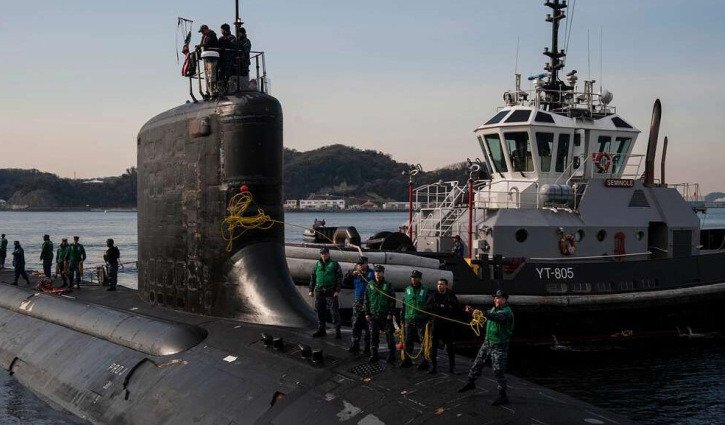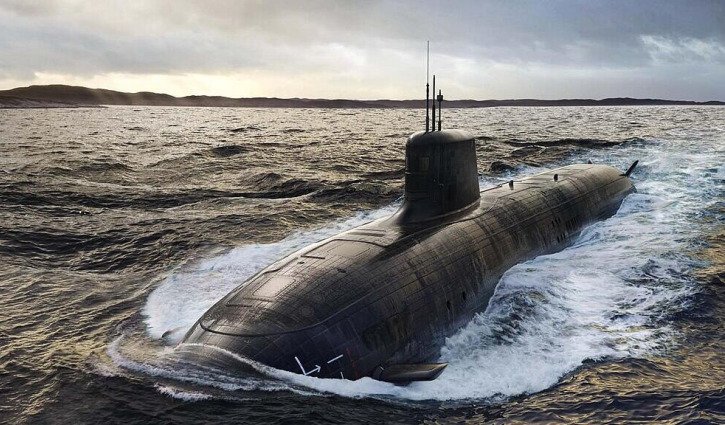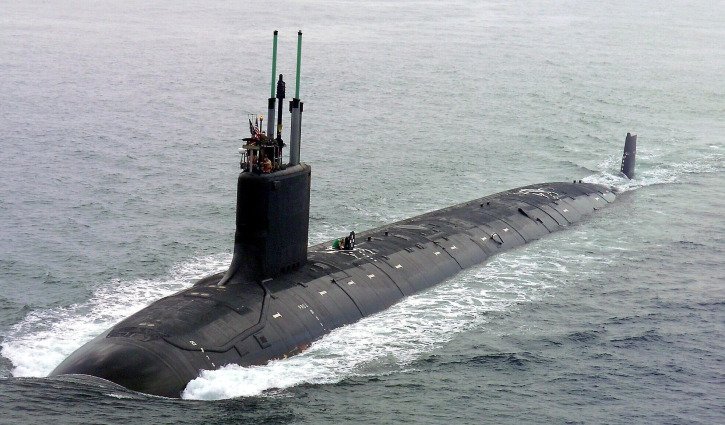UPDATED: The AUKUS security deal between Australia, the United States and the United Kingdom is under review by the Pentagon.
The review is underway to ensure the deal made in the Biden era is in line with U.S. President Donald Trump’s "America First" policies.
"As [Defense] Secretary [Pete] Hegseth has made clear, this means ensuring the highest readiness of our service members, that allies step up fully to do their part for collective defence, and that the defence industrial base is meeting our needs,” an official told the ABC.
The pact was made in 2021 to boost Australia’s defence with nuclear-powered submarines at a cost of more than A$350 million, joining an exclusive club of only six countries that will operate nuclear submarines by 2032.
It also came after Australia cancelled a €50 billion deal with France for nuclear submarines in favour of AUKUS in 2021.
This comes as U.S. Secretary of Defence Pete Hegseth has demanded Australia lift its defence spending to almost $100 billion a year to better support the U.S. in the Indo-Pacific.
On Tuesday Australian time, The Financial Times reported that the review into whether the U.S. should scrap the deal was being led by top defence official, Elbridge Colby a long-time sceptic of AUKUS.
“AUKUS is a great example. In principle it’s a great idea. But I’ve been very skeptical in practice. I remain skeptical - agnostic as I put it to @smh - but more inclined based on new information I’ve gleaned,” Colby posted to X in August last year.
According to the Financial Times, the deal has caused anxiety in London and Canberra.
However, former Australian Prime Minister Paul Keating has weighed in on the issue, joining a chorus of Aussie sceptics calling the deal the “most poorly conceived defence procurement program ever adopted by an Australian government”.
He also said this could be the moment Washington saves Australia from itself.
“The Albanese government had the chance to undertake a review on its own terms when first elected to office in May 2022, but denied itself the opportunity for fear of being seen as dodgy on the alliance,” Keating said in a statement.
“Now President Trump’s Pentagon, as it is entitled to do, is subjecting the deal to the kind of scrutiny that should have been applied to AUKUS in the first instance."
Malcolm Turnbull, another former Australian Prime Minister, has also called the deal a fiasco to news.com.au.
“It is a debacle. I’ve been saying this for years. It was a debacle when Morrison recklessly entered into it, and it was a debacle when Labor, to avoid a political wedge, went along,” he said.
“The problem with this deal is it’s so asymmetrical, you know, we give the Americans $3 billion, they only have to give us submarines if they feel they could spare them.”
It is unclear how the U.S. could tweak the deal or when officials will make a decision, but the deal has the support of several lawmakers, including Secretary of State Marco Rubio.
Another vocal supporter of the deal is Congressman Joe Courtney, who released a statement saying that backing out of the deal would be a mistake.
“The new administration certainly has the right to review the trilateral AUKUS mission, but as the recent UK government’s defence review determined, this is a defence alliance that is overwhelmingly in the best interest of all three AUKUS nations, as well as the Indo-Pacific region as a whole,” he said.
“To abandon AUKUS – which is already well under way – would cause lasting harm to our nation’s standing with close allies and certainly be met with great rejoicing in Beijing.”
Australian Prime Minister Anthony Albanese was set to meet with Trump at the G7 summit in Canada next week; however, this has been left in limbo after the U.S. condemned Australia along with other countries.
Former ambassador for the U.S. Joe Hockey told ABC News that Albanese must have a lengthy conversation with Trump about AUKUS and the benefits it has for both countries.
"By gosh, I keep suggesting to the Australian government in various ways that you can't ignore the Trump administration," he said.
"If we do not get the Virginia-class submarine in 2032, we have no options left. We have no submarines.”
Earlier this year, the Australian government paid the U.S. almost $80 million, the first in a series of payments to help America improve its submarine manufacturing capabilities. This is part of the $3 billion Australia has committed to investing in modernising the U.S. shipyards.
The Greens have proposed a plan B defence policy that would cancel AUKUS.



